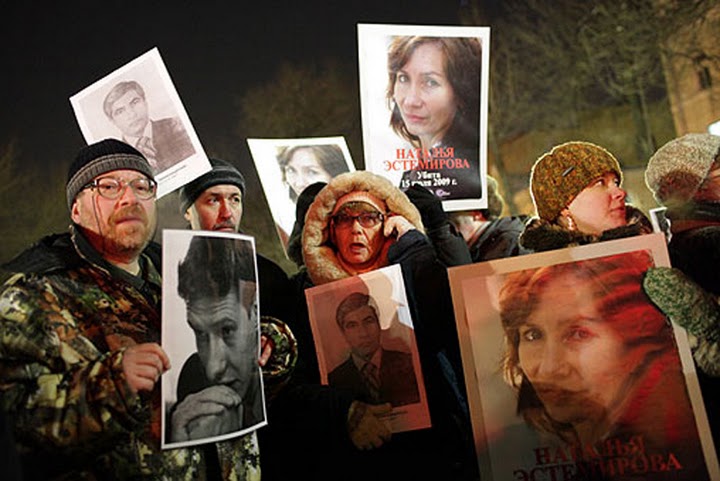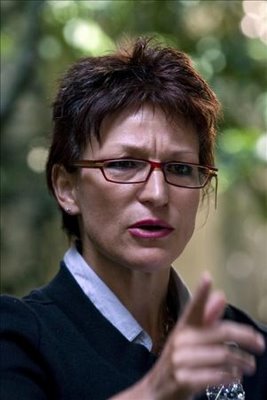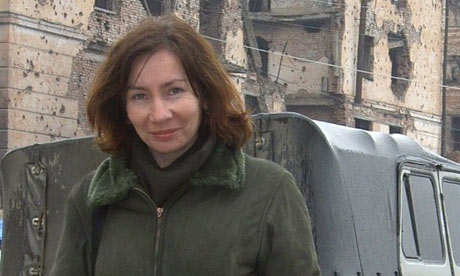 The report was published on the occasion of the conference on safety of journalists in the Organization for Security and Cooperation in Europe (OSCE) region, set to take place from 7-8 June 2011 in Vilnius, Lithuania.
The report was published on the occasion of the conference on safety of journalists in the Organization for Security and Cooperation in Europe (OSCE) region, set to take place from 7-8 June 2011 in Vilnius, Lithuania.
Atmosphere of impunity prevails
It examines a number of cases of journalists who have disappeared and/or been killed in connection with their professional activities since 2000 in Ukraine, Belarus and Russia.
None of these cases have been fully solved; although there have been arrests and prosecutions in some of them, none of the instigators and few of the perpetrators have been brought to justice.
The result in all three states has been the emergence of a climate of impunity, violations of journalists’ human rights, and a chilling effect on freedom of expression. Assaults on journalists constitute not only attacks against individual victims and their families, but also represent an attack on the broader right to freely receive and share information.
The report presses governments of Belarus, Russia and Ukraine to put in place appropriate and acceptable protection mechanisms for journalists under threat and conduct prompt, effective and independent investigations in cases of violence in order to bring both the perpetrators and the instigators to justice.
OSCE urged to take action
“None of the perpetrators behind the murders or disappearances of journalists highlighted in the report have been brought to justice. It is first and foremost political will that is mis sing to address the impunity for these violations”, comments Dr Agnes Callamard (right), Executive Director of Article 19.
sing to address the impunity for these violations”, comments Dr Agnes Callamard (right), Executive Director of Article 19.
“It is crucial that the OSCE prioritises the protection of journalists and increases pressure on these three countries to comply with their international human rights obligations,” continued Callamard.
Jane Møller Larsen, Head of the IMS Media and Democracy Unit adds: “IMS insists that threats, attacks and assassinations of journalists be investigated and punished. Not only to give justice to the journalists and their families but also to secure that media can work professionally – to secure pluralism and diversity of the media and avoid self-censorship – and to make sure that the media can play its very important role in society as a watch-dog.”
The report makes recommendations to the authorities in Ukraine, Belarus and Russia, as well as to the international community, on the legal and political measures needed to protect journalists and defend the right to freedom of expression in these countries.
These recommendations are largely the product of discussions which took place during the conference organised by Article 19 and International Media Support (IMS) in Kyiv, Ukraine on 16 September, 2010, „Ten Years On, No Justice for Georgiy Gongadze: the Need to Find New Ways to Fight Impunity.
In the report, Article 19 and IMS urge the three governments publicly to recognise journalists’ vulnerability to violence due to their work, condemn attacks, deaths and disappearances without prejudice, and refrain from any negative propaganda about the journalist in question.
Ukraine
Ukrainian opposition journalist Georgiy Gongadze (left) was killed in 2000.  On 14 September 2010, two days before the tenth anniversary of his disappearance, the Ukrainian General Prosecutor’s Office announced that it had concluded its investigation. It named former Minister of Interior Yuriy Kravchenko as the instigator and mastermind behind Gongadze’s disappearance and killing.
On 14 September 2010, two days before the tenth anniversary of his disappearance, the Ukrainian General Prosecutor’s Office announced that it had concluded its investigation. It named former Minister of Interior Yuriy Kravchenko as the instigator and mastermind behind Gongadze’s disappearance and killing.
It took 10 years to come to this conclusion, and still, many doubts remain as to whether he was in fact the person who ordered Gongadze’s killing, as crucial evidence was never appropriately investigated.
Concerns have been raised that in Ukraine, investigations into the disappearance of Kharkiv-based journalist Vasyl Klymentyev in August 2010 will follow a similar course.
As such disappearances are rare in Ukraine, Klymentyev’s disappearance came as a blow to the journalistic community and was an immediate test for the relatively new political regime to show its commitment to democracy and the rule of law.
These disappearances, according to the report, combined with physical attacks and increased pressure on independent media, have led local media organisations to express concern that Ukraine’s media environment will soon mirror the situation in neighbouring Russia, where an atmosphere of intolerance towards expressing opinions critical of the government has developed.
Russia
According to the UN Special Rapporteur on Freedom of Expression, Russia is considered one of the most dangerous countries in the world for journalists. In June 2010 he called on “the Philippines, Somalia, Iraq, Pakistan, the Russian Federation and Mexico (the States accounting for the greatest number of journalists’ deaths, in descending order) to adopt the measures necessary to guarantee the protection of journalists.”
descending order) to adopt the measures necessary to guarantee the protection of journalists.”
The reaction of the Russian government to his concerns was both disappointing and dishonest. Its representative stated that although there are attacks against journalists in the Russian Federation, “in every case a careful investigation is undertaken and the guilty receive the punishment they deserve,” irrespective of whether these assaults are linked to their professional activities. As evidenced by many of the case profiles included in this report, this is simply untrue, as in the majority of cases the perpetrators are never found.
Belarus
Such an approach is also evident in Belarus, where there are striking parallels between Georgiy Gongadze’s case and that of cameraman Dmitriy Zavadsky (below). Zavadsky disappeared in Minsk in July 2000 and his body has never been found. This occurred  during a spate of politically motivated disappearances of high-ranking politicians in Belarus in 1999 and 2000.
during a spate of politically motivated disappearances of high-ranking politicians in Belarus in 1999 and 2000.
The death in September 2010 under suspicious circumstances of Aleh Byabenin, a Belarusian human rights activist, journalist and the founder and editor of an independent news web-site Charter’97, has raised the fear of further attacks against journalists.
Although Belarus has allowed an international review of the initial investigation into Byabenin’s death, there is little hope that his case, which the authorities immediately classified as a „suicide”, will be independently investigated.
Find the full text of report here.
Related articles:
Russia: two sentenced for murder of journalist Baburova and human rights lawyer Markelov
Belarus: suspicious ‘suicide’ of human rights activist and Charter97 founder
Attacks on journalists in Belarus, Ukraine and Russia – attacks on freedom of expression
2010 Impunity Index anounced by Committee to Project Journalists
Russia: Chechen human rights advocate remembered
Impunity: stopping the killers
CPJ calls for information on Natalya Estemirova murder
Letters of concern:
Anniversary of Russian HR lawyer and journalist commemorated
Letter to the President Medvedev regarding the killing of Stanislav Markelov


